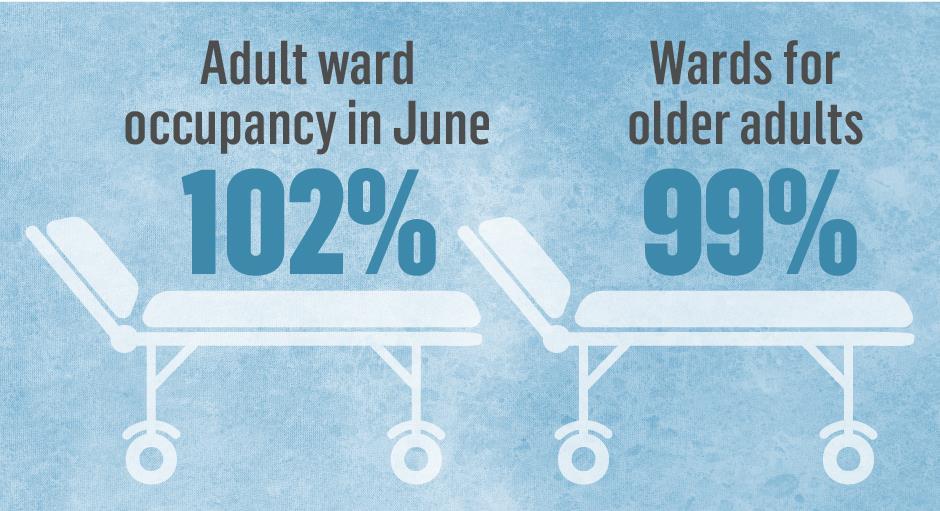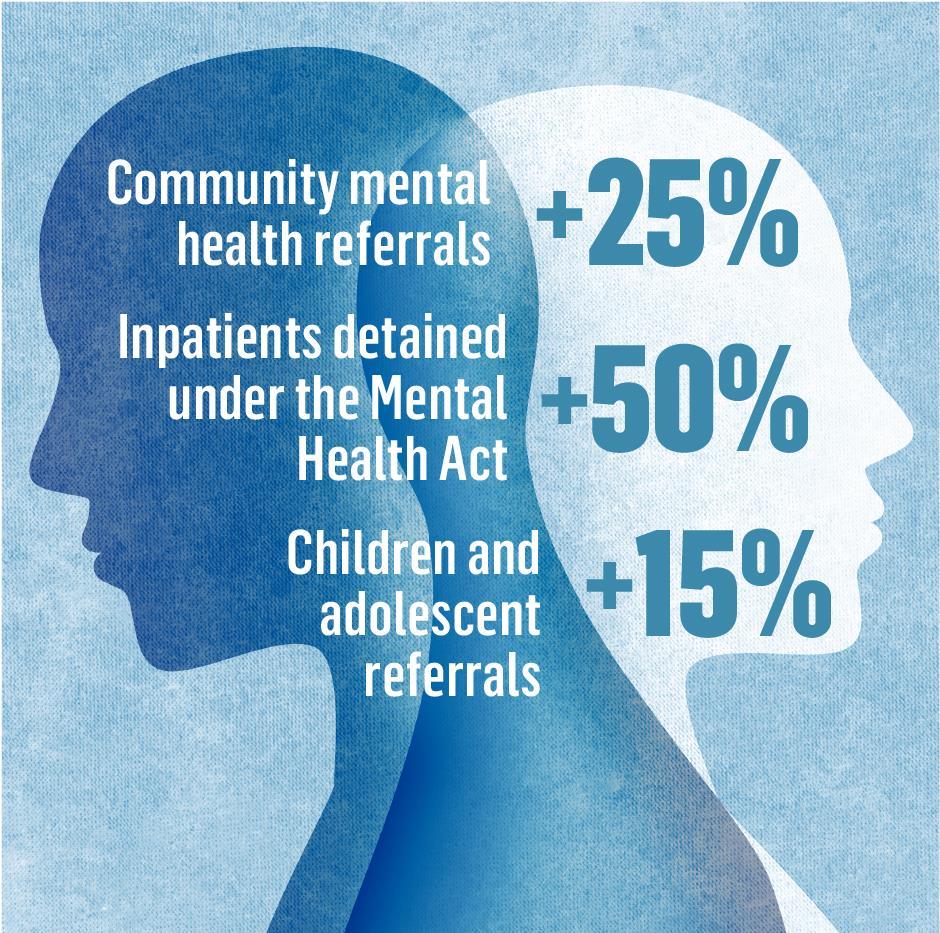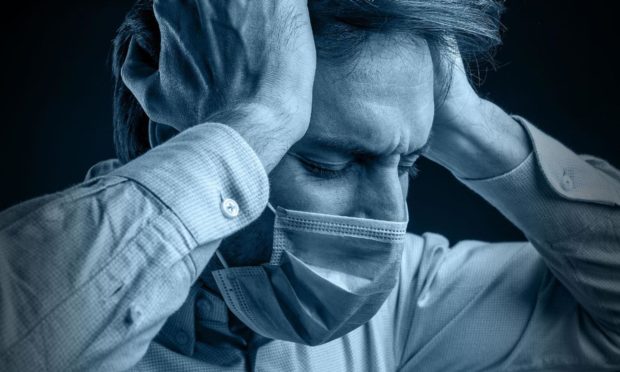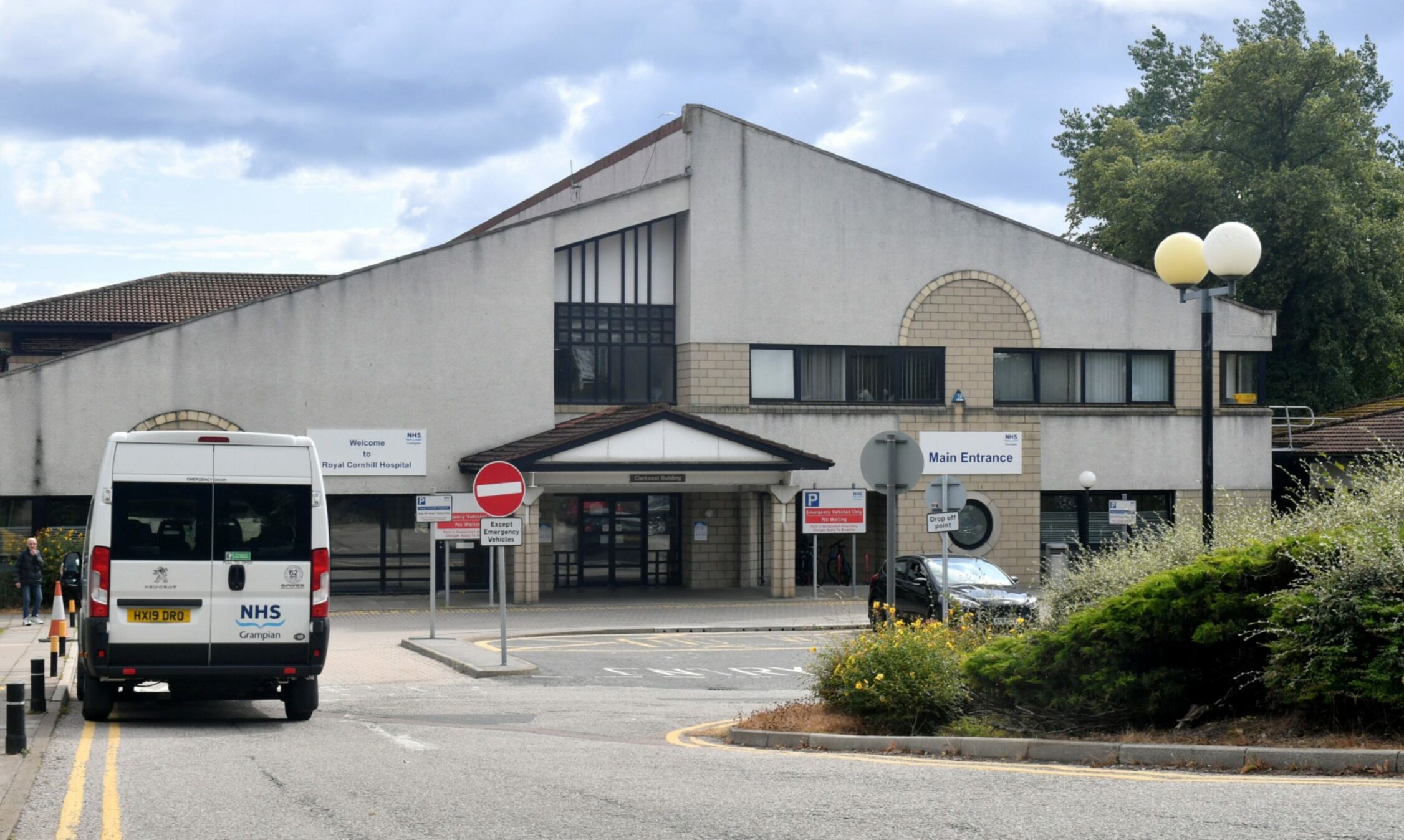Mental health wards have been reaching full capacity, with more patients presenting with serious illness, health chiefs have warned.
A new report has laid bare the impact the third wave of Covid cases has been taking on these services in Aberdeen, with the pandemic causing a “high level” of pressure.
Staff have also noticed a “marked increase” in referrals for children and adolescent mental health services (CAHMS) – again with a larger proportion of severe cases compared to pre-pandemic times.
Wards at capacity
Stats revealed by Aberdeen City Health & Social Care Partnership (ACHSCP) show referrals to community mental health teams have increased by an average of 25% amid the pandemic.
And bosses have also told of “extremely high” occupancy levels within mental health wards.

With an increase in patients and temporary decrease in available beds, capacity in Cornhill’s adult wards hit 102%.
The hospital has three wards with 21 beds each for adults aged 18-65.
It has a further pair of 21-bed wards for older adults – with occupancy there reaching 99%.
Patients have had to be “boarded” elsewhere in the hospital to ensure they receive the treatment required.
More patients seriously ill
And of the patients admitted to Royal Cornhill Hospital in June, almost two-thirds were detained under the Mental Health Act, meaning they were thought to be a risk to themselves or others.

This represents a sharp increase of around 50% compared to pre-Covid levels – showing the people arriving at the hospital are, overall, more acutely unwell than they have been in the past.
Additionally, mental health referrals for children and adolescents in Aberdeen have risen 15% during the Covid pandemic.
This included a “significant” rise in the severity of cases, particularly those requiring specialist top-tier services and help with eating disorders.
The challenges have been outlined in a report going before next week’s Aberdeen Integration Joint board, which says: “There are significant staffing pressures across both inpatient and outpatient services.
“Despite all these pressures, we have maintained essential and critical services.”
Rise was ‘predicted’
Graeme Kinghorn, the chief executive of Mental Health Aberdeen, says the current rise in patient numbers was not completely unexpected.
“MHA is now beginning to experience what was predicted by Astrid Whyte, our counselling services manager, at the beginning of lockdown last year.
“That is, a wave of people experiencing significantly higher levels of anxiety for a number of reasons that are the unintended consequence of Covid-19 restrictions.
“A much higher proportion of the local community is presenting with symptoms of mental ill-health that have gone well beyond mild to moderate, as early intervention in the normal way has been very difficult.
“This is being experienced across all six of our counselling projects”

